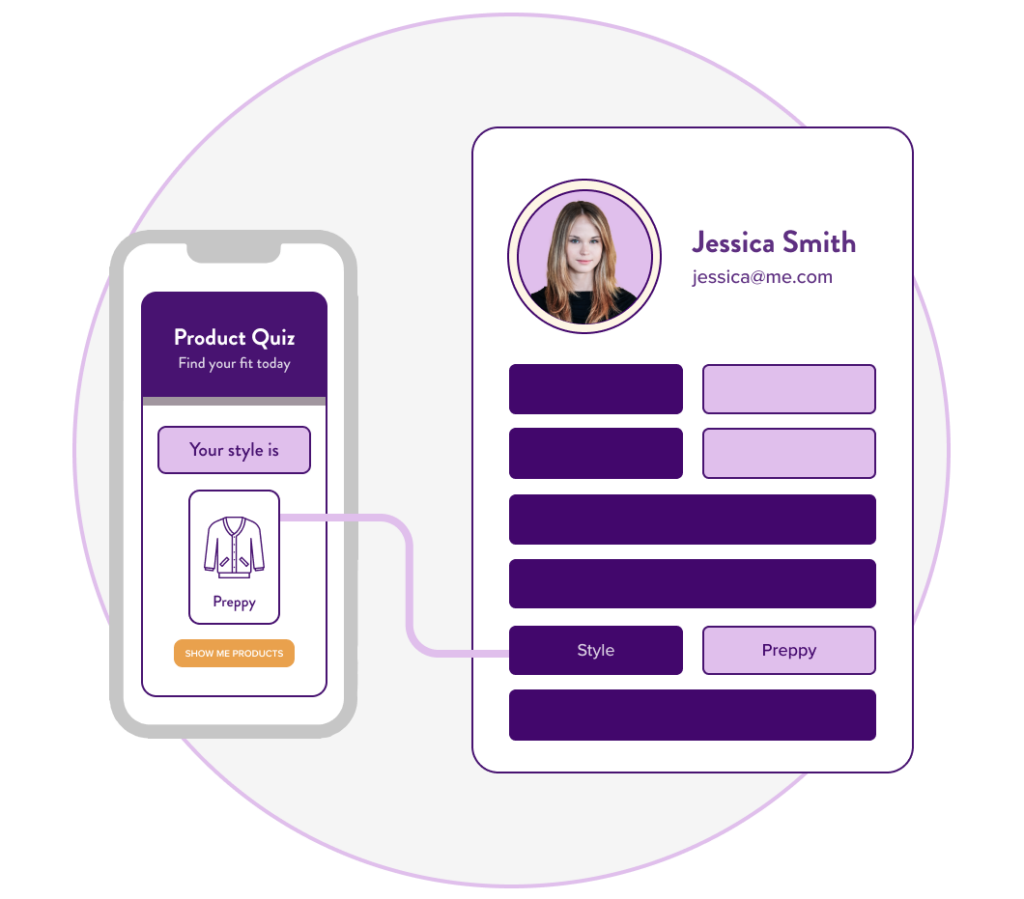Your Customers Want Relevance, Not Creepy Personalization
Learn why brands are looking at zero-party data to optimize their customer experience

Learn why brands are looking at zero-party data to optimize their customer experience

76% of consumers get frustrated when brand interactions are not personalized
Only 22% of consumers feel the data brands gather from them results in better experiences.
Privacy laws, the deprecation of third-party cookies, and changes in consumer sentiment are causing new data challenges for brands.
Zero-party data is information that a consumer intentionally and proactively shares with a brand. Examples include personal needs or values, likes/dislikes, purchase intentions, and more.
When zero-party data is used as a complement to traditional first and third-party, brands can supercharge their personalization efforts to deliver better customer experiences.
Zero-party data (ZPD) is the solution to many modern day data challenges. ZPD:
Great data collection experiences should be fun, engaging, well-timed, and easy to participate in.
Want to learn more about your anonymous website visitors while directing them to relevant site content? Try a Next Best Question.
Want to guide an online shopper to purchase while learning about their preferences? Try a Product Advisor.
When asking for data from your consumers, the value you can create in exchange for that data must be clearly understood.
Value can be in the form of personalized product or content recommendations, loyalty points, coupons, promo codes, a sweepstakes entry, sample, or more. The best value exchange mechanism will always depend on your business and where the customer is at in their buying journey.
Only collect zero-party data you will use. Ideally, action earned data as soon as possible to provide immediate value to your consumers and build trust.
Utilizing preference-based personalized offers, product recommendations, and content is a great way to immediately action preferences for a better customer experience.
Zero-party data is powerful and personal, and consumers should have the ability to control and manage the data they share with a brand at any time. Customer Preference Centers allow for this control.
Necessary cookies are absolutely essential for the website to function properly. This category only includes cookies that ensures basic functionalities and security features of the website. These cookies do not store any personal information.
Any cookies that may not be particularly necessary for the website to function and is used specifically to collect user personal data via analytics, ads, other embedded contents are termed as non-necessary cookies. It is mandatory to procure user consent prior to running these cookies on your website.